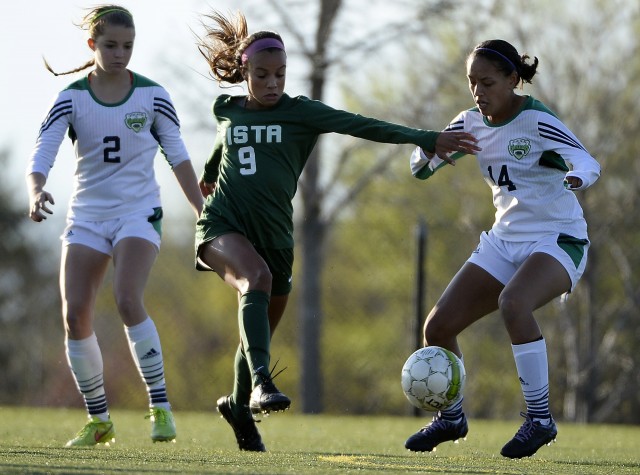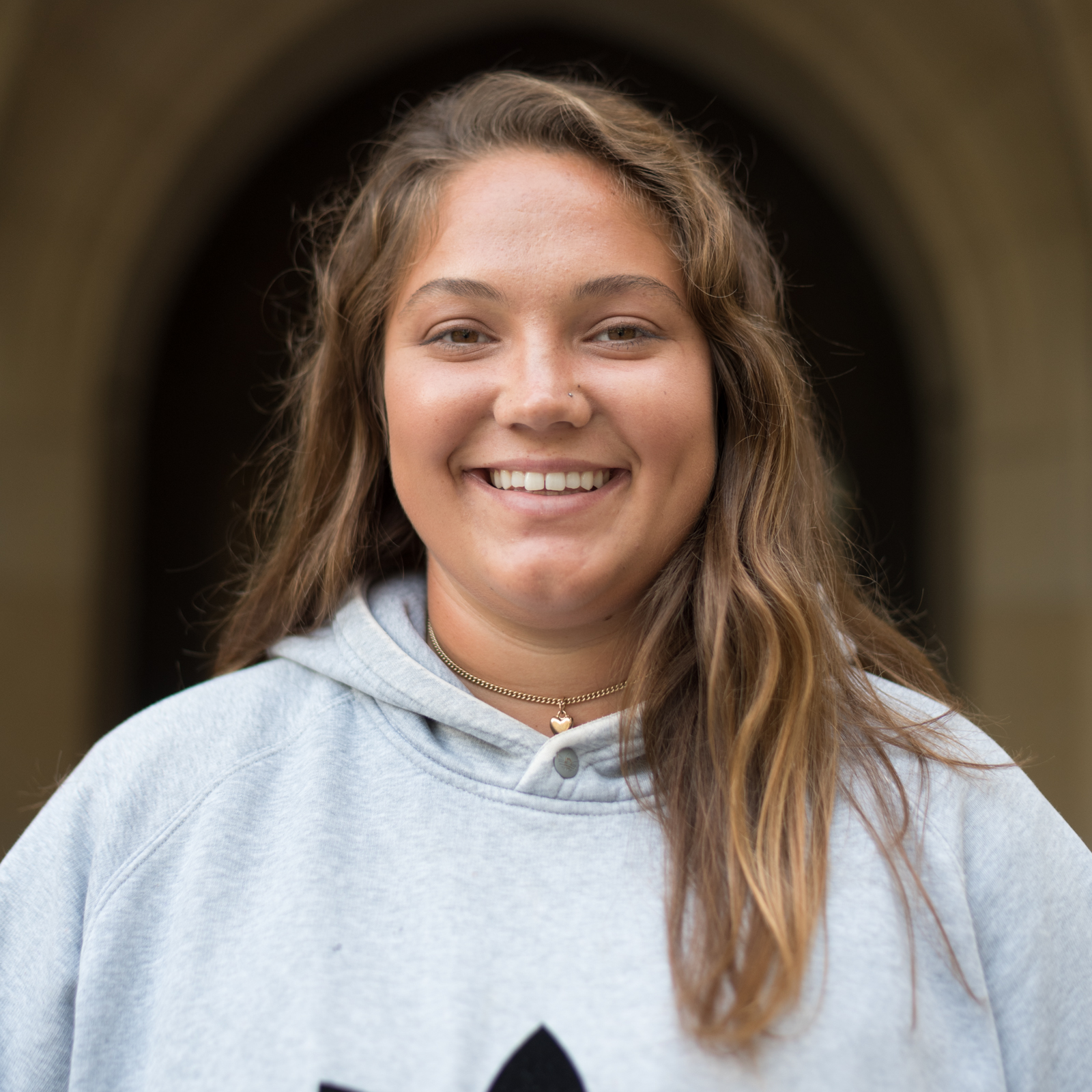After US wins Women’s World Cup, equal pay and sponsorship debate is reignited

Mallory Pugh played just three spring games with UCLA women’s soccer before turning pro. She’s one of three players on the World Cup winning United States Soccer Women’s National Team to have played for the Bruins. (Courtesy of Aaron Ontiveroz/The Denver Post)

By Jacqueline Dzwonczyk
July 8, 2019 1:45 a.m.
Mallory Pugh posted a sponsored Instagram photo of her and the other former Bruins on the United States Soccer Women’s National Team – Sam Mewis and Abby Dahlkemper – the day before the U.S. took on Spain in the FIFA Women’s World Cup round of 16.
Ten days later, Nike reported that USWNT home jerseys became the highest selling soccer jersey, men’s or women’s, in a single year. The next week, the U.S., coached by former UCLA coach Jill Ellis, clinched the World Cup final with a 2-0 win over the Netherlands.
So people started talking.
The years old “equal pay for equal play” debate was reborn with a frenzy of new followers, trying to understand the system U.S. Soccer uses to compensate the men’s and women’s teams through both national team and club salaries. People want to know why Pugh and other members of the World Cup champion team are forced to rely so heavily on sponsorships.
UCLA School of Law professor Steven Bank – an expert on legal issues surrounding soccer – mediated debates via tweets and a series of interviews in which he explained the intricacies of the soccer system through a financial and legal standpoint.
“The FIFA corruption scandal hit and U.S. Soccer lawsuits started coming left and right – and both of those are really the result of corporate government issues,” Bank said. “But these issues are made worse by the fact that you’re dealing with nonprofit, publicly minded organizations that are really run by private businesses.”
The U.S. National Women’s Soccer League, founded in 2012, is the first women’s league to last more than four consecutive years after U.S. Soccer launched two previous leagues in 2001 and 2007, which both folded.
The current system relies on U.S. Soccer to pay the wages of certain players to subsidize the league and retain the best players.
“In a lot of ways, the market for women’s club players is artificial,” Bank said. “But as women get more opportunities to play abroad at reasonable wages … that will alleviate the need for U.S. Soccer to be paying those salaries.”
Top players in NCAA Division I women’s soccer – such as UCLA’s Jessie Fleming, who has also represented Canada internationally since 2013 – have generally chosen to complete all four years of college eligibility because earning a sustainable wage in women’s professional soccer has been difficult.
“For the average player who does not have the endorsement potential, it’s hard to make the case for leaving college based on the salaries they might be able to get,” Bank said. “The question of the salary you would get in the league is almost a rounding error compared to what you could get from endorsements.”
But as sponsorships become more common for female soccer players, there is more opportunity for athletes to forgo college.
Pugh came to UCLA and played in three spring games before opting to go pro. Bank said Pugh’s decision was not about her potential salary, but centered around brand deals.
“I had the agent for (Pugh) come speak to one of my classes at the law school, and he said the first thing he did for her … was not to try out for professional clubs and see whether they were interested,” Bank said. “It was to go to Nike, Adidas – the footwear people and apparel manufacturers – and see what (Pugh) could get from them.”
Pugh now regularly promotes Nike, Gatorade and Hulu, among other brands, via Instagram, Twitter and television ads to supplement her NWSL and USWNT salaries.
Like Pugh, U.S. midfielder Lindsey Horan turned down a full ride to North Carolina to sign with Paris Saint-Germain FC, and Tierna Davidson gave up her final year of eligibility at Stanford to declare for the 2019 NWSL draft.
If the Fair Pay to Play Act passes, giving collegiate athletes in California the right to earn money from their name, image or likeness, the NCAA will have a way to retain talented players that may go straight to the pros. If no legislation is changed with regard to sponsorships, many top players may follow Pugh, Horan and Davidson in bypassing college.
“To the extent that women can get endorsement deals, that seems like something that we shouldn’t restrict,” Bank said. “It is an issue that if the colleges don’t adapt, then players will bypass the colleges and the college game will become less important.”
While athletes in other sports still have the incentive of a six figure salary if they turn pro earlier, women’s soccer players rely heavily on sponsorships, which if possible in college, make it an easy decision to skip out on the NWSL salary in favor of endorsement money, scholarship money and an education.
In the wake of the Women’s World Cup, ESPN signed a deal to air 14 NWSL games this summer and FIFA has promised to start a Women’s Club World Cup to promote growth from the national level up to the international tournaments.
But the prospect of playing in a national league is still shaky at best.
“Recently the NWSL has improved, but to say it’s improved is to say it’s gone from being on life support to having at least a little stability,” Bank said. “They’re not truly, by any stretch, stable.”
The NCAA is safe. And in coming seasons, it may also be profitable for the best of the best female players.

